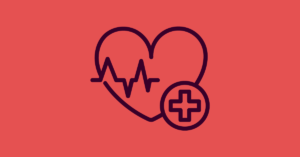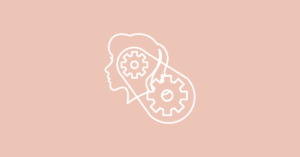Snapshot
Menopause is a natural transition for all women and it doesn’t happen overnight
Menopause is the stage in a woman’s life when her menstrual periods permanently stop, marking the end of reproductive years. It typically occurs between ages 45-55, caused by a decrease in hormones like estrogen and progesterone. Symptoms vary but can include hot flashes, mood swings, and sleep disturbances. Understanding menopause helps women manage symptoms and make informed health decisions. Taking care of mental and physical well-being, seeking professional guidance when needed, and embracing lifestyle changes are key strategies for thriving through this stage.
The hormonal shifts behind menopause
Menopause is a natural biological process signaling the end of a woman’s reproductive years. It’s defined as the point when menstrual periods have stopped for 12 consecutive months. But menopause doesn’t happen overnight. It’s the result of a gradual decline in hormone levels—specifically estrogen and progesterone—produced by the ovaries. These hormones regulate many functions in the body, including the menstrual cycle.
As the ovaries produce less estrogen, women may notice changes in their menstrual cycle, like irregular periods, heavier or lighter bleeding, and eventually, no periods at all. The average age for menopause is 51, but it can happen earlier or later depending on various factors like genetics, health, and lifestyle.
Research tells us...
Research shows that the hormonal shifts leading to menopause can start years before your last period, in a stage called perimenopause. Perimenopause can last anywhere from a few months to over 10 years. During this time, women may experience a wide range of physical and emotional symptoms—some mild, others more disruptive.
Studies have shown that nearly 75% of women experience hot flashes during menopause, making it one of the most common symptoms. Other frequent symptoms include night sweats, vaginal dryness, sleep problems, and mood swings. [Source: North American Menopause Society (NAMS)].
What to expect in the three stages of menopause
Perimenopause
This is the transition phase leading up to menopause. Hormone levels fluctuate, which can result in unpredictable symptoms like mood changes, irregular periods, and hot flashes. This stage can start as early as a woman’s 30s or 40s.
Menopause
Officially marked when a woman hasn’t had a menstrual period for 12 consecutive months. Symptoms may continue, and the risk for certain health conditions like osteoporosis and heart disease increases due to lower estrogen levels.
Postmenopause
This stage follows menopause and lasts for the rest of a woman’s life. Hormonal symptoms often ease, but managing long-term health risks becomes important.
How to prepare for menopause before it begins
Taking care of our health earlier in life can make menopause easier to navigate. Regular exercise, maintaining a balanced diet rich in calcium and vitamin D, and not smoking can help reduce the severity of symptoms. Staying informed about family history can also provide insight into when menopause might start and how to manage it.
Supporting your body and mind during menopause
Managing menopause is about understanding what’s happening in our bodies and finding ways to support ourselves. Some strategies include:
Lifestyle adjustments: Incorporating regular physical activity and focusing on a nutrient-rich diet helps manage symptoms and promotes overall well-being.
Stress management: Practicing mindfulness, yoga, or relaxation techniques can help alleviate emotional symptoms like mood swings and anxiety.
Medical treatments: Hormone Replacement Therapy (HRT) and other medical interventions can be discussed with healthcare providers if symptoms significantly impact daily life.
Knowing when its time to seek professional menopause support
While menopause is a natural process, it’s important to seek medical advice if symptoms are overwhelming or interfere with your quality of life. Some signs to look out for include:
- Extremely heavy bleeding or periods that last longer than a week.
- Symptoms that cause severe emotional or physical distress.
- Onset of menopause symptoms before the age of 40 (known as premature menopause).















